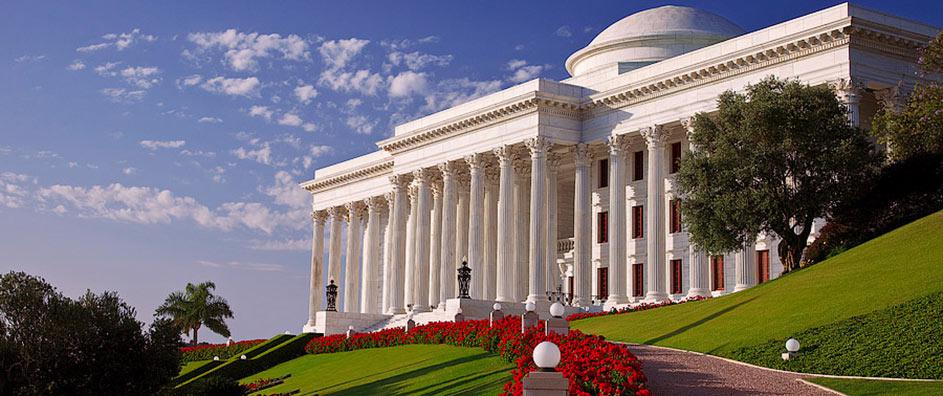The question of whether the Bahá’í Administration could evolve into a global government evokes a myriad of considerations, from its foundational principles to its practical implications. Would such an administrative framework serve to foster unity and peace, or could it engender unforeseen complications? This inquiry not only stimulates intellectual engagement but also prompts deeper reflection on the nature of governance and the aspirations for a more unified global society.
At the crux of the Bahá’í teachings lies the vision of unity. This vision is not merely aspirational; it is embedded in the very essence of Bahá’í doctrine which posits the oneness of humanity as an unassailable truth. The Bahá’í Administration encapsulates this notion through a distinctive governance system characterized by consultative governance, democratic processes, and representative institutions. With the Universal House of Justice at its helm, the Bahá’í community advocates for a model of administration that is consultative rather than coercive, prioritizing collaborative decision-making over authoritarian control.
In pondering the potential for this administration to ascend to a global governance structure, it is imperative to examine the operational mechanisms that characterize this system. The Bahá’í Administration functions through a network of elected bodies at various local, national, and international levels. This decentralized approach suggests a paradigm that values diversity and inclusion, recognizing the multiplicity of cultural and ethnic identities while striving for overarching unity. Theoretically, can such a model scale to encompass a fragmented world rife with diverse interests and clashing ideologies?
To analyze this question effectively, one must consider the historical evolution of governance systems. Throughout history, various forms of governance have emerged, shaped by the exigencies of their times. The transition from tribal societies to nation-states exemplifies humanity’s ongoing quest for order and communal harmony. The Bahá’í concept of administration finds itself situated in an illustrious lineage, potentially heralding a new iteration of governance that transcends nation-states, particularly in an age where global challenges such as climate change, pandemics, and geopolitical tensions require coordinated responses.
However, the proposition of the Bahá’í Administration becoming a world government is fraught with challenges. One must contemplate the sociopolitical dynamics that are inherently resistant to such a transformation. The essential element of sovereignty—deeply entrenched in national identities—poses a significant hurdle. Nations vested with historical loyalties and aspirations may view the establishment of a central global authority as a direct threat to their autonomy. Would Bahá’í principles, which advocate for the dissolution of prejudices, be enough to assuage such fears? Or would this proposal engender resistance from those who perceive the encroachment of global governance as an infringement upon their self-determination?
Moreover, the practical implementation of Bahá’í administrative principles within a global context entails deliberation on various logistical and ethical dimensions. The notion of unity presupposes a common set of values and objectives. However, the heterogeneity of belief systems and cultural narratives could complicate the establishment of a universal agenda. Will the Bahá’í call for unity be recognized and embraced by diverse populations? The success of any global governance structure hinges on the willingness of individuals to transcend their parochial interests in favor of a broader collective good.
Furthermore, it is essential to explore the relationship between the Bahá’í Administration and existing global institutions. The United Nations, alongside regional entities, has made inroads in fostering international cooperation. Nevertheless, it remains an assembly of sovereign states with varying levels of commitment to collective mandates. The Bahá’í approach advocates for a transition beyond these state-centric models towards a more inclusive and collaborative methodology. Could the Bahá’í Administration serve as a complement to existing frameworks? Or does the evolution towards a unified world government necessitate a radical transformation of these institutions?
In considering these questions, one may also ponder the implications of a harmonized global administration on social justice. The Bahá’í teachings emphasize the importance of equity and justice, urging societies to eradicate material and social inequalities. A global governance model rooted in Bahá’í principles would prioritize the welfare of the marginalized and oppressed. Yet, the realization of such objectives may confront substantial obstacles, including entrenched economic disparities and power imbalances among nations. Thus, while the aspiration for a Bahá’í-inspired global governance structure is noble, the practical realities pose formidable challenges.
The Bahá’í vision of a united world invites each individual to consider their role in this grand tapestry of humanity. It challenges us to envision a reality contingent upon mutual respect, trust, and cooperation. The potential for the Bahá’í Administration to serve as a model for global governance illuminates two salient points: the necessity of restructuring existing governance paradigms to respond to global exigencies and the imperative of cultivating genuine, inclusive dialogue among diverse stakeholders. Only through earnest engagement can the possibility of a unified and just world emerge as a tangible reality.
In conclusion, while the aspiration for the Bahá’í Administration to evolve into a world government inspires hope, it necessitates careful deliberation of both the ethos of Bahá’í teachings and the complexities of contemporary global dynamics. The journey towards such a vision will not be devoid of obstacles, yet it is through the pursuit of understanding and collective action that humanity may advance towards a more harmonious existence. Perhaps, the challenge posed is not merely whether the Bahá’í Administration can become a world government, but rather how each individual can actively contribute to this epoch-defining quest for unity and peace.
